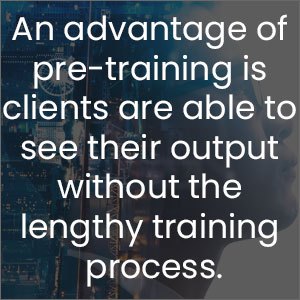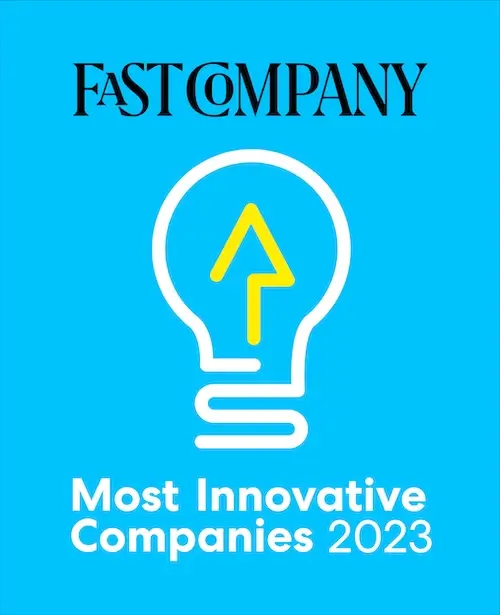It’s easy to get the two confused. Artificial intelligence (AI) and machine learning (ML) are often used interchangeably. But there are nuances and distinctions which are quite important with respect to contract management software.
Here’s what you need to know:
DEFINING AI AND ML
TowardsDataScience.com defines artificial intelligence as “loosely interpreted to mean incorporating human intelligence to machines.” From a contract perspective, AI gives a CLM (contract lifecycle management) the ability to read and interpret agreements for salient elements important to the corporate legal counsel. This means being able to run through a contract review and extract key aspects based on the context of the clause, statement, or part of the agreement.
Now, think of machine learning as a subset of AI. ML is the method of training an artificial intelligence system or network. In other words, AI is the trained intelligent system whereas ML is the training/learning process for an AI.
WHY IS THE DISTINCTION IMPORTANT?
Both artificial intelligence and machine learning seem quite closely associated. So, should I be concerned with the nuances? An advantage of a pre-trained AI for contract management is the quality of results
YES. Specific to contract management technology, the nuances are very important. And, they have important implications on the amount of additional work your team must take on.
ContractPodAi focuses on providing legal artificial intelligence with its solution. That means the AI for contracts delivered here, is already trained. In fact, these systems are pre-trained with hundreds of thousands of contracts before any system is delivered to an organization’s general counsel. Multitudes of legal documents have already been used to train the machine intelligence, to drastically improve it’s accuracy. This way, the general counsel or legal operations team receives the benefits of AI without the ordeal and time taken to train the engine.
On the other hand, some vendors use a high-level brush stroke AI definition. Sometimes, what they really mean is that they deliver machine learning with their contract lifecycle management (CLM). In this case, the onus falls upon the shoulders of the general counsel, legal operations team, or contract manager to train the models. With a little luck that might only take 6 months of testing, training, and retraining.
WHY IS A PRE-TRAINED AI AN ADVANTAGE?
The case of a pre-trained AI for a client is quite straightforward. In ContractPodAi’s case, the Legal Engineering team works to update the knowledge base for the AI. This is done by using public/subscribed libraries of templates. In addition, during the implementation phase clients can also provide their own sets of contracts and unique templates. These are used by the Legal Engineering team to further train, test the output, and conduct required tweaks to the AI. This way, artificial intelligence is specifically tailored to the client’s needs.
A clear advantage of pre-training is that from day one, clients are able to see their output without going through the lengthy training process. Given the large volume of contracts that can number in thousands, a training cycle can be onerous.
TRAINING BY LEGAL ENGINEERS
Another significant advantage of a pre-trained AI for contract management is the quality of results. Using specialists like Legal Engineers to do machine training, makes sense. A practiced Legal Engineer understands the subtleties of machine learning. This is important to avoid providing conflicting instructions, which can clearly impact the output quality. A solution to preventing your AI-equipped CLM from becoming stagnant is leveraging the vendor.
HOW TO KEEP THE CONTRACTS AI DYNAMIC 
A pre-trained contract management AI means that the client can use the system immediately. There is no six-month training period. But, how do you prevent the system from stagnating? After all, contracts are created daily, even hourly at many companies.
An ideal solution to preventing your AI-equipped CLM from becoming stagnant is to leverage the vendor. In this case, the vendor’s specialized legal engineering team can adapt and retrain your AI on an ongoing or periodic basis. When considering contract lifecycle management for your organization, expressly ask your vendors about their support options. If they don’t provide this opportunity for ongoing or periodic retraining of your AI, then consider the next vendor. In short, you need a system that will adapt to your needs. In this quickly evolving field, there is no room for technology that stagnates which you must then swap out after a year or two.
AI OR ML FOR YOUR CONTRACTS?
Both artificial intelligence and machine learning in contract management ‘appear’ to speak to the same concept. Don’t be fooled, they are different! The machine learning model, or ML model, is about training and stabilizing the AI. Artificial intelligence for contracts is a fully trained system. Here, the AI can provide risk management and legal document insights and extracts. However, when speaking with vendors about their technology, make sure you are getting a fully developed AI that is ready to go, out of the box. This way, you can start assessing the contract performance of your operations without delay.
To find out more about the most advanced contract AI on the market, delivered and ready-to-go, speak with us at ContractPodAi. With a no-hassle, no-pressure approach, we are here to help you make the best choice for your corporate legal team.
Author:

Viraj Chaudhary
Connect with us on Linkedin











